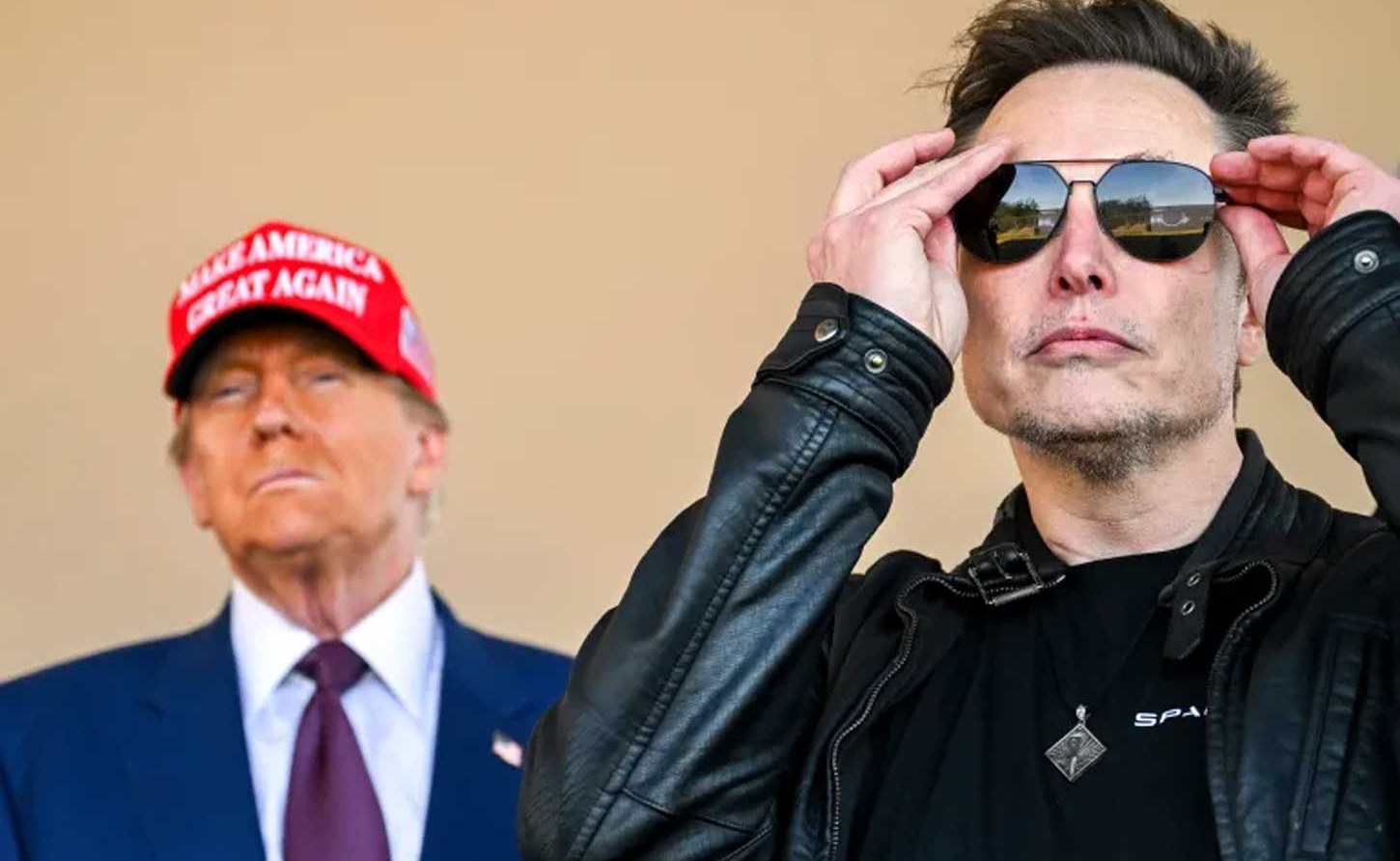BARBADOS | Preparing for Trump 2.0: A Caribbean Perspective on American Political Upheaval

BRIDGETOWN, Barbados, December 30, 2024 - In the shadow of a potential second Trump presidency, the Caribbean nation of Barbados faces what former Foreign Service chief Peter Laurie calls an unprecedented diplomatic challenge - one he likens to "sleeping with a rabid, malevolent elephant."

Trudeau once quipped that living next to the United States is akin to “sleeping with an elephant. No matter how friendly and even-tempered the beast, one is affected by every twitch and grunt.”
Now imagine if that elephant isn’t merely restless, but raging and malevolent.
The transformation from what Laurie terms "Trump 1.0" - an era marked by inept bumbling - to a potentially more calculated "Trump 2.0" presents an existential threat that extends far beyond American borders.
With the backing of MAGA intelligentsia and tech billionaires, Laurie warns, this new iteration could mirror historical parallels to authoritarian regimes of the past.
The international landscape Laurie envisions is nothing short of apocalyptic. The post-World War II order, he argues, stands to be dismantled in favor of transactional arrangements between authoritarian powers and their client states.
Climate change initiatives would be abandoned, free trade would give way to costly tariffs, and human rights - including women's rights - would face severe setbacks globally.
In this dark vision of the future, traditional international alliances would crumble. NATO's dissolution would leave Eastern Europe vulnerable to Russian expansion, while China's territorial ambitions would go unchecked.
The United Nations itself, Laurie suggests, would cease to exist as a meaningful entity, marking the end of the post-war multilateral order.
For small nations like Barbados, Laurie prescribes a delicate balancing act of diplomatic pragmatism. "Keep our heads down," he advises, with the measured wisdom of a seasoned diplomat.
"Do or say nothing to antagonise, but don't suck up – that won't work." This strategy of deliberate invisibility stems from a stark assessment: in a MAGA-dominated world, any attention would likely be unwelcome attention.
Yet beyond mere survival, Laurie outlines a bold vision for regional resilience. He advocates for a comprehensive diversification of Barbados's international relationships, pushing for stronger ties with Canada, Central and South America, Africa, Europe, Asia, and the Middle East. This pivot, he suggests, should be executed with quiet determination rather than grand pronouncements.
The prescription extends to economic planning as well. Laurie recommends a gradual distancing from U.S.-dominated financial institutions like the IMF and World Bank, while simultaneously positioning Barbados as an attractive alternative for investors seeking stability outside an increasingly volatile American market. The country's existing Digital Nomad Programme could serve as a beacon for Americans looking to escape domestic turmoil.
In a particularly noteworthy observation, Laurie identifies an unexpected opportunity in women's healthcare. With reproductive rights potentially facing severe restrictions in a second Trump administration, Barbados's progressive 1983 Termination of Pregnancy Act could position the island as a destination for medical services - though he cautions against overtly promoting such services for fear of religious backlash both abroad and at home.
The vision Laurie presents for domestic resilience is both practical and profound. He calls for Barbados to embrace a model of self-sufficiency and communal support, urging citizens to "tighten our belts, eat what we grow, cut and contrive." This back-to-basics approach, he suggests, could be enriched by an influx of returning nationals fleeing American instability - what he cleverly terms "We Gatherin' on steroids."
Drawing on W.B. Yeats's prophetic poem "The Second Coming," Laurie frames the current moment as one where "the centre cannot hold." Yet unlike Yeats's vision of mere anarchy being loosed upon the world, Laurie sees a more structured threat - one requiring equally structured preparation. His proposals, while sobering, offer a roadmap for small nations navigating the whims of larger powers.
The message resonates beyond Barbados's shores, speaking to a broader Caribbean audience that might be tempted to view American political upheaval as a distant concern.
Laurie's analysis suggests otherwise: in an interconnected world, the ripples of American authoritarianism would reach every shore, requiring careful preparation and strategic foresight from even the smallest nations.
Laurie's warning serves as both a wake-up call and a call to action. While his scenario may seem apocalyptic to some, his practical suggestions for resilience offer a framework for maintaining sovereignty and dignity in potentially turbulent times ahead.
Barbados, like the rest of the Caribbean, cannot afford complacency. Any seismic shift in American politics inevitably sends ripples across our region. By watching global trends, diversifying our partnerships, and fortifying our social and economic resilience, we might just weather the coming storm.
-30-
